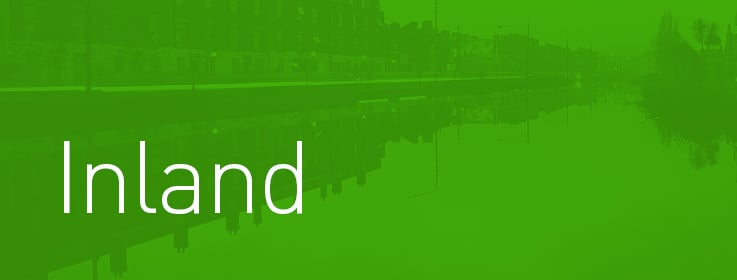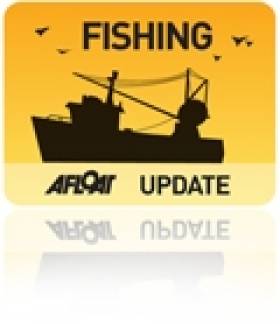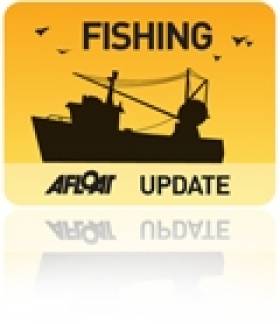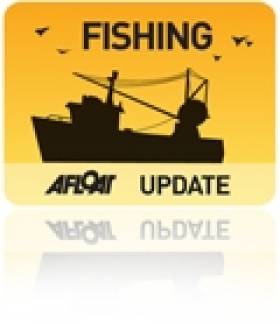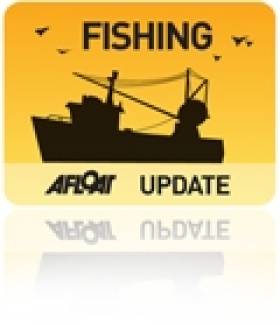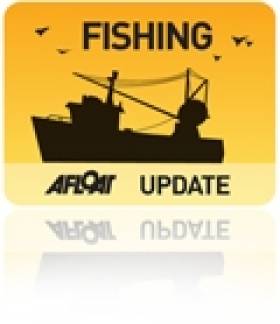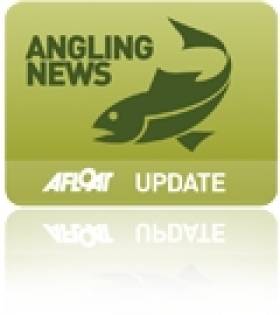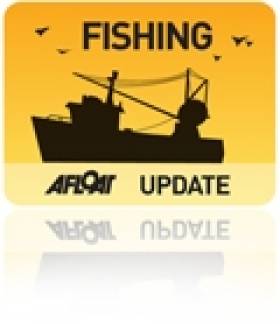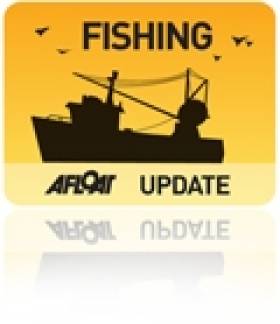Displaying items by tag: mackerel
Lengthy Mackerel Negotiations Lead to Agreement Between EU, Norway & the Faroe Islands
#mackerel – Following years of disagreement and often bitter dispute between the countries fishing on the annual €1billion Mackerel stock in the North East Atlantic, a three party five year agreement involving the EU, Norway and the Faroe Islands has been reached today in London. This agreement addresses the management of Mackerel by the three parties in the North East Atlantic. This Agreement was only reached after particularly intensive negotiations over the last eight weeks. Iceland is not party to this agreement.
Minister for Agriculture, Food and the Marine, Simon Coveney TD today said "I have always supported a deal that would bring an end to the irresponsible and excessive fishing of mackerel stocks that we have seen over the past five years. This new five year agreement, which is certainly not ideal, does ensure that in line with the EU and Norway, the Faroese will be subject to fixed quotas which will protect against the previous dangerously high levels of fishing and help to secure the long term sustainability of this stock, which is of vital importance to Ireland." .
The Minister also said "I welcome the fact that under this Agreement Iceland will get no access to EU Waters to fish Mackerel and this was always an important principle for myself and for the Irish Fishing industry to secure as part of any agreement in order to protect the markets for Irish fishermen. I also welcome the fact that Norway got no additional access to fish Mackerel in EU waters. In addition, I welcome the fact that the Quota of Mackerel available to Irish Fishermen to fish this year on foot of this agreement will increase by over 60% from the current 65,000 tonnes to 105,000 tonnes." Mackerel is Ireland most valuable fishery.
Minister Coveney added that "While clearly disagreeing with aspects of the deal, I always recognised the importance of bringing the Faroes Islands into an agreed and responsible management arrangement of the mackerel stock with the EU and Norway. However, I was disappointed with an aspect of the final outcome which gave the Faroe Islands an increased 12.6% share of the stock and set aside a further 15.6% for Iceland, Greenland and Russia. I consistently argued at Council and throughout these negotiations that the levels being proposed for these parties were too high and on that basis I could not support the overall deal. The European Commission and the other EU Mackerel Member States were willing to accept the granting of those levels of share to Iceland and Faroes. I am relieved that we secured agreement that Norway will proportionally share with the EU the burden of the allocation of these quota shares and this sharing of the burden was a critical requirement demanded by Ireland."
The Irish industry, represented at the negotiations by the Killybegs Fishermen's Organisation, has been fully and consistently involved in the negotiating process working closely with other impacted fishermen's organisations to influence the negotiations. Throughout the lengthy process, they have provided sound advice on the impacts of proposals and have indentified some of the key elements needed in order to protect to the greatest extent possible the interests of the Irish industry.
The parties to the agreement agreed not to participate or promote a commercial fishery for mackerel by Greenland. Greenland recently announced a new "experimental" fishery of 100,000 tonnes. Ireland fully supported the Commission in its view that such an amount could in no way be regarded as "experimental" and was in fact a new unregulated commercial fishery. The agreement opens the way to sanctions being taken against any country responsible for unsustainable fishing of mackerel outside this agreement.
Minister Coveney said "I have worked closely with Sean O Donoghue, the Irish industry representative throughout the negotiations and have at every opportunity worked to protect and advance the interests of the Irish Fishing industry in these negotiations. In line with the views of the Irish industry, I was prepared to agree to shares for both Iceland and Faeroes that would, in my opinion, have been fair and balanced. In the agreement, the parties set shares for Faroes and set aside a portion of the total catch for Iceland and others that are higher than I could support. That said, I am pleased that working closely with the Irish industry, we successfully kept large Icelandic vessels out of our waters and that the increases in shares will be borne proportionately by the EU & Norway. The agreement also set clear boundaries for any party fishing for mackerel outside of this agreement, and I consider that this is a critically important achievement. It will allow the EU to pursue through sanctions irresponsible fishing by any non contracting party.
The Minister went on to say "For the first time in five years the Irish fleet will have a greater degree of certainty and stability. The scientific indications are that this extremely valuable stock remains in good shape, and all the current projections are that this should continue. This situation together with this three party agreement should help to secure Ireland Mackerel fishing industry, which is vital to many coastal communities in Ireland. In any event, we will be working to improve Ireland position in the fishery at the conclusion of this short term deal."
The Minister concluded his remarks by thanking Commissioner Damanaki and her Commission staff for their tireless efforts to secure an agreement in difficult circumstances. "The Commissioner is a tough and able negotiator as I learned at fist hand during the Common Fishery Policy Reform process under the Irish Presidency last year. While we differ on significant aspects of this deal, I fully recognise her achievement in getting this three party agreement, which while far from ideal in some key respects, will provide some much need stability in this fishery"
Marine Minister Welcomes Negotiations on Mackerel Quotas
Minister for Agriculture, Food & the Marine, Simon Coveney TD today welcomed the start of crucial international negotiations on mackerel quotas for the North East Atlantic. The negotiations are being hosted by Ireland in the National Seafood Centre in Clonakilty, County Cork.
Minister Coveney said that "I am very pleased that Ireland is hosting these negotiations. Mackerel is the single most important stock for the Irish fleet and the value of the international mackerel industry has been estimated at €1 billion annually to the parties. We need to secure agreement at international level on management arrangements for this stock. I very much hope that a fair and balanced agreement can be reached this week at what I am sure will be intensive and tough talks."
The aim of the negotiations is to try and reach agreement on the sharing arrangements for mackerel between the EU, Norway, Iceland & the Faeroes islands. The Russian Federation and Greenland will also participate as observers. Up to 70 international delegates are expected in West Cork for the week long negotiations.
Minister Coveney went on to say "From an Irish perspective, I have never accepted the irresponsible behaviour of both Iceland and the Faeroe Islands, who have engaged in unacceptable unilateral fishing of the shared mackerel stock over the past number of years. That said, let me be clear, I want an agreement this week, just not at any cost. Iceland and Faeroes are entitled to a fair and justifiable share but any new agreement must also protect the interests of EU Member States, like Ireland, who have relied on this fishery for over 40 years."
At last month's Council meeting of Fisheries Ministers, Minister Coveney outlined his view that any new offer to Iceland must be jointly agreed with Norway on the basis of equal burden sharing and that Iceland should not be granted access to EU waters as a part of any deal. The Minister also expressed his support for an initiative from the European Pelagic industry. Minster Coveney said today that "I consider that the industry initiative, involving a tiered approach with different percentage shares for each of the parties depending upon the scientific advice on the size of the stock, might form the basis for a balanced and equitable agreement. Ireland will continue to work closely with the Commission, who negotiate on behalf of the EU, and other Member States with a significant interest in the fishery at the negotiations in the National Seafood Centre, Clonakilty with a view to finding a solution acceptable to all."
Minister Coveney in Mackerel Fight for Irish Coastal Communities
#mackerel – Minister Simon Coveney T.D., today at the Council of Ministers, and in a separate bilateral meeting with EU fisheries Commissioner Maria Damanaki made the case for a fair and balanced sharing agreement for mackerel and argued strongly against rewarding Iceland and the Faeroe Islands for their unacceptable and irresponsible actions in respect of the shared mackerel stock over the past number of years.
The Minister also met with the key Ministers from other member states including Minister Canete from Spain, the new UK Minister, George Eustice and the Scottish Minister, Richard Lochead, and pressed Ireland's position.
Minister Coveney said that "I outlined today to the key players what I consider must be the fundamental principles for any agreement with Iceland. Any new offer to Iceland must be jointly agreed with Norway on the basis of equal burden sharing. Iceland must not be granted access to EU waters as a part of any deal. Critically, I made it clear that while any deal should provide a fair and justifiable quota share for Iceland, it must also protect the interests of EU Member States like Ireland who have relied on this fishery for over 40 years.
Negotiations are due to take place in London next week between the EU, Norway, Iceland and the Faeroes on possible future sharing arrangements' for the mackerel stock in the North East Atlantic. In advance of those negotiations, Minister Coveney asked that the issue be discussed by the full Council of Fisheries Ministers. He also sought a meeting with Commissioner Damanaki to outline his concerns that any solution to this long running issue must be fair and balanced and not discriminate against the Irish fishing industry.
Minister Coveney concluded "Ireland will participate fully in the important negotiations next week in London and will do all that we can to ensure that any agreement is balanced and equitable and protects the interests of EU Member States like Ireland who have such a strong reliance on the mackerel stock".
Coveney Blasts Iceland's 'Irresponsible' Mackerel Quota
#Fishing - Mackerel quotas will be the focus of discussions among European fisheries ministers in Brussels today as Ireland seeks a reduction of Iceland's share.
As RTÉ News reports, Marine Minister Simon Coveney will seek "strong and decisive action" against Iceland and the Faroe Islands unless the European Commission reports progress in talks over the realignment of mackerel catch limits.
Iceland's quota for mackerel increased from 2,000 tonnes in 2009 to a whopping 146,000 tonnes just two years later as stocks of the staple fish soared - partly due to migration from more southerly European waters.
But Minister Coveney has blasted Iceland's move as "irresponsible and unacceptable fishing".
The talks come in the wake of fruitful reform of the Common Fisheries Policy led by the minister as president of the EU Fisheries Council during Ireland's EU Presidency in the first half of this year.
Coveney will Demand Action against Iceland and the Faroe Islands for Excessive Mackerel Fishing
There is a common mackerel fish stock in Irish, Norwegian and European waters. These same fish transit through Icelandic and Faroes waters during their migration from Norway to spawn off the south-west of Ireland. If the mackerel stock is overfished in one area, this will damage the stock and reduce the availability for the Irish fishing industry.
The Minister said that "Iceland, for the last three years and the Faroe Islands for the last two, have been operating unilaterally and their fishing levels ,which will come to over 300,000 tonnes this year, are completely unsustainable and outside of normal internationally recognised management protocols. The result of the Icelandic and Faroes overfishing is that almost 1 million tonnes of Mackerel will be fished this year, almost 50% more than the scientifically advised maximum outtake from the stock."
Minister Coveney said "Let us be clear, if there is not a resolution to this situation, serious damage will be done to the mackerel stock in EU waters resulting in potentially dramatic reduction of quotas to Irish vessels and to the supply of mackerel to Irish fish factories. This outcome is totally unacceptable as EU/Norwegian fishing policy has resulted in gradually building up the mackerel stock, which now faces destruction from irresponsible fishing by Iceland and Faroes. These two countries, outside the EU, are totally ignoring the responsible management of the stock and if left unchecked, the current behaviour will do economic damage with loss of jobs in the north- west and south -west of Ireland."
Numerous attempts by the EU and Norway over the last number of years to bring Iceland and the Faroe islands into a fair and sustainable management framework for mackerel have failed. On the demands for trade sanctions the Minister said "I have put this issue on Tuesday's EU Fisheries Council agenda as I am very concerned at the delay in introducing legislation to implement trade sanctions against these two countries. The time for inaction is over and there is an immediate need, supported by Member States for legislation to be adopted this autumn". He went on to say that "if left unchecked this level of fishing by Iceland and Faroes will have a detrimental impact on the health of the mackerel stock which is, economically, Ireland's most important fishing resource".
The Council will also discuss methods for setting fishing levels for 2012. On the Commission's proposals the Minister said "I want coherent and scientifically informed arrangements put in place to determine 2012 fishing levels and to sustain our fishing industry and coastal communities".
The Minister plans to meet the Scottish and English fisheries Ministers, Richard Lockhead and Richard Benyon bilaterally. These meetings will focus issues of common interest and in particular the mackerel overfishing by Iceland and the Faroes.
New Guide Service for Fly Fishing in Cork Harbour
A new guide service is now available for anyone wishing to sample bass and saltwater fly fishing on Ireland's south coast.
World Sea Fishing reports on Cork Harbour-based Richie Ryan, a specialist fly fishing guide who pilots the first boat fully licenced for saltwater fly fishing in Ireland.
Aboard the Sea Hawk, Ryan will impart his expert knowledge in catching bass, sea trout, mullet, pollack, mackerel and garfish, among others, in the waters of Cork Harbour.
According to World Sea Fishing's Mike Thrussell, guides such as Ryan "will become an essential part in sustaining the future of Irish bass fishing and their conservation".
For further details call 021 481 1103 (mobile 086 194 0744), e-mail i[email protected] or visit www.corkbass.com.
European Commission Penalise Spanish for Over-fishing
In a move to protect dwindling fish stocks, the European Commission recently took decisive action by significantly reducing Spain's mackerel quotas over the next few years as a result of over-fishing. This over-fishing of mackerel by the Spanish has been of major concern to the Irish fishing industry and was brought to the attention of the Commission by the Sea-Fisheries Protection Authority (SFPA) and other bodies.
Spanish fishermen landed almost twice as much mackerel in 2010 from the Cantabrian Sea, in the southern part of the Bay of Biscay, as they were permitted. Through their investigations, the European Commission discovered that the mackerel catch exceeded Spain's quota in the year 2010 by 19,621 tonnes. The European Commission has now passed a regulation reducing Spain's future quotas to account for the excess catches. Spain is obliged, in the period between 2011 and 2015, to return twice the amount of mackerel wrongfully caught.
In order to help combat over-fishing the SFPA operates a round the clock monitoring and surveillance programme to ensure the effective control of fish catches and landings. To promote a culture of compliance with National and EU legislation, landings by Irish, EU and Third Country vessels are inspected by the SFPA in Irish ports. Sea-Fisheries Protection Officers engage in a range of at-sea inspection programmes including both inshore and offshore patrols in conjunction with the Naval Service and Joint inspection patrols with other Member States operating in Irish waters and in those of other Member States.
The SFPA will work with Member States and with the Community Fisheries Control Agency (CFCA) based in Vigo, Spain, when a specific control and inspection programme for pelagic fisheries in Western Waters of the North East Atlantic is established - this is expected to be adopted in the near future. This will allow for the co-ordination of joint control, inspection and surveillance activities by Member States for these pelagic fisheries.
Peter Whelan, Chairman of the SFPA said: "The recent decision by the EU to impose sanctions on Spain for over-fishing and to protect the valuable mackerel fishery is significant. There is a need for all Member States to work together and to comply with the Common Fisheries Policy's rules in order to ensure the sustainable development of fisheries. The role of the SFPA supports profitable, sustainable, managed fisheries at a time when the fishing industry faces many challenges. Effective monitoring and control systems safe-guards the good reputation of Irish food producers in the international marketplace and protects Irish taxpayer from the threat of large fines being imposed when non-compliances with the Common Fisheries Policy are encountered. The SFPA will continue with our aim of working with other Member States to promote a uniform standard of monitoring, control and surveillance."
Mr. Sean Connick, T.D. Minister of State at the Department of Agriculture, Fisheries and Food welcomed the agreement reached after two days of talks in Brussels on 2011 quotas for the Irish fishing fleet.
The final agreement will deliver whitefish quotas worth some €116 million, including the protection of Ireland's €54 million prawn fishery. There will be a 10% increase in quota for Ireland's €75 million mackerel industry and a two thirds share, worth approximately €4 million, for Irish fishermen of the new boarfish industry.
Speaking at the end of the negotiations in the early hours of Wednesday (16 December), the Minister said
"The negotiations have been particularly challenging this year with the European Commission proposing cuts across many stocks of commercial importance for Ireland. Consulting with our fishing industry and NGOs, working with other Member States and concentrating on the scientific evidence, was, I believe key to securing a balanced sustainable package."
"This package will help underpin the economic future of our costal communities."
There will be 15% increase in haddock and whiting stocks in the Celtic Sea. While for the cod stocks off the North West and the Irish Sea, the quotas will be reduced by 25% in line with the Recovery Plan for these stocks. For Celtic Sea cod, the current quota level has been maintained for 2011 on the basis of new survey results from the State's Research Vessel "Celtic Explorer".
Minister Connick commented "By introducing new information on Celtic Sea cod, I secured agreement that the current level of TAC will continue into 2011, and may be increased during the year if the new survey results are confirmed by the scientists. However, given the poor state of cod stocks off the North West and in the Irish Sea, cuts were necessary".
Commenting on the 3% reduction in the prawn quota, the Minister said "Prawns are a very important fishery all around our coast. It is the most valuable catch for the Irish whitefish fleet worth €54 million. While the Commission originally proposed a 17% cut, I secured just a 3% decrease in the quota on the basis of a strong scientific case."
The quota for mackerel will be increased by 10%, and should be worth up to €75m in 2011. This is the most important fishery for the North West fleet based in Killybegs and is also important for the South West multi purpose fleet, supporting processing jobs in the coastal communities.
There were also increases in the quota for Celtic Sea herring of 30%, although there were cuts in the North West stock reflecting concerns about the state of those stocks.
Finally, Ireland secured the largest share in an important new fishery for boarfish that will be worth just under €4 million in 2011. The Irish fishing industry has been working with the scientific community to develop a management plan for boarfish, a mid-water shoaling species, now found in large volumes off the South West coast. The agreement reached in Brussels provides for a total allowable catch of some 33,000 tonnes, with two thirds going to Ireland.
Minister Connick commented "In an example of a successful investment in scientific research by industry, we have opened up a new fishery and secured the major stake in that industry. This ensures a new revenue stream for Irish industry into the future. We believe we can now develop a significant and sustainable fishery on this stock, in which we will continue to hold the largest share".
Connick Leads Criticism of 'Unsustainable' Mackerel Fishing by Iceland and Faeroes
Minister Connick said "I want to see a fair deal to resolve this issue and secure the future for our fishermen and fish factories. However, I made it clear that I will not accept a deal at any price."
Currently Iceland and the Faroe Islands are acting unilaterally and outside of normal fishery management protocols and their actions pose a serious threat to the well being of the mackerel stock which economically, is Ireland's most important stock. The item was placed on today's agenda in advance of the intensive negotiations on mackerel management due to commence in October and as a follow up to the June Council where Ireland lead the debate.
Minister Connick reiterated his dismay at the continuing irresponsible fishing by Iceland and the Faroes on the mackerel stock, and his desire to see a resolution to the situation. So far in 2010, Iceland has caught about 115,000 tonnes which is more than 25 times their catch four years ago. In the case of the Faroes, their 85,000 tonnes is more than 3 times their catch in 2006. Ireland's quota in 2010 is 62,000 tonnes.
The Minister said "Ireland has consistently supported the need to reach an international agreement on mackerel management. However we can only accept an agreement that is fair and proportionate. We consider that the current fishing levels by Iceland and the Faroes are totally unjustified and that any eventual agreement must involve much reduced levels of fishing by these countries. We must robustly put our case and minimise the final cost to our fishermen."
The long term stability of the lucrative mackerel stock is of paramount importance to Ireland and in urging for increased intensification of efforts to reach a solution the Minister advised the Council that "It is my opinion that a joint approach with Norway, considering our long term agreement with them, would have added weight and would be more likely to succeed".
Minister Connick said, "I was heartened by the widespread support of my EU colleagues for the concerns that I first raised on this issue at the June Council".
There will be intensive negotiations over the autumn and the Minister committed that Ireland would work closely with other Member States and the Commission to consider all options to make progress and find a basis for a long term agreement. The Minister emphasised the critical importance of securing fair and equitable arrangements at international level that will deliver a sustainable mackerel fishery for the Irish fleet and ensure the continued prosperity of the seafood processing sector in coastal communities.


























